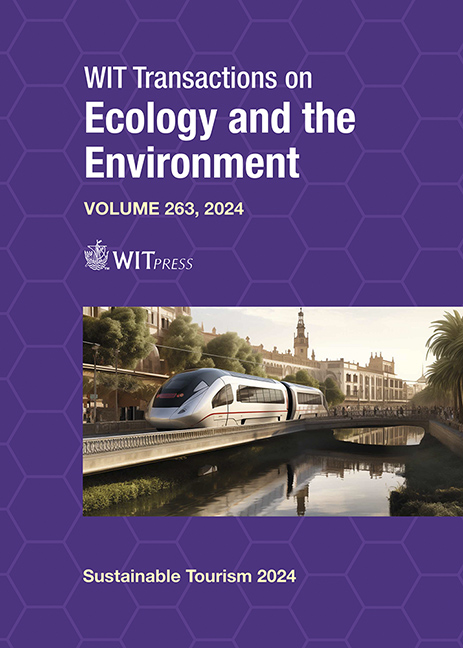INTEGRATED COASTAL MANAGEMENT IN EMERGING TOURIST DESTINATIONS ON THE MEXICAN CARIBBEAN COAST
Price
Free (open access)
Transaction
Volume
263
Pages
13
Page Range
243 - 255
Published
2024
Paper DOI
10.2495/ST240201
Copyright
Author(s)
MÓNICA ARIADNA CHARGOY ROSAS, ÓSCAR FRAUSTO MARTÍNEZ, JOSÉ ALFREDO CABRERA HERNÁNDEZ
Abstract
Mexico’s Caribbean coast is known for its large tourist centres, such as Cancun, Playa del Carmen and Tulum. In 2023, they generated revenues of more than $20.5 billion, continuously recovering after the COVID-19 pandemic. As a result of new regional development policies (for example, investment in infrastructure such as the Tulum airport and the Mayan Train), the model of expansion of tourist activity along the entire coast continues. The main goal of this study is to present the progress in identifying the key issues and actors described in the State Coastal Policy to recognise areas of opportunity and advance their application at the local level. To do this, we identified key issues (opportunities and threats) by examining the institutional instruments of coastal policy. The results show 11 central themes, 19 focal topics and four key issues: (a) urbanisation and provision of services; (b) integrative vision with diverse actors; (c) environmental or ecosystem connectivity; and (d) management of government agencies. We concluded that these critical issues build the strategies and actions necessary for adopting integrated coastal management in the southern Mexican Caribbean.
Keywords
policy, sustainable development, tourism, integrated diagnostics





